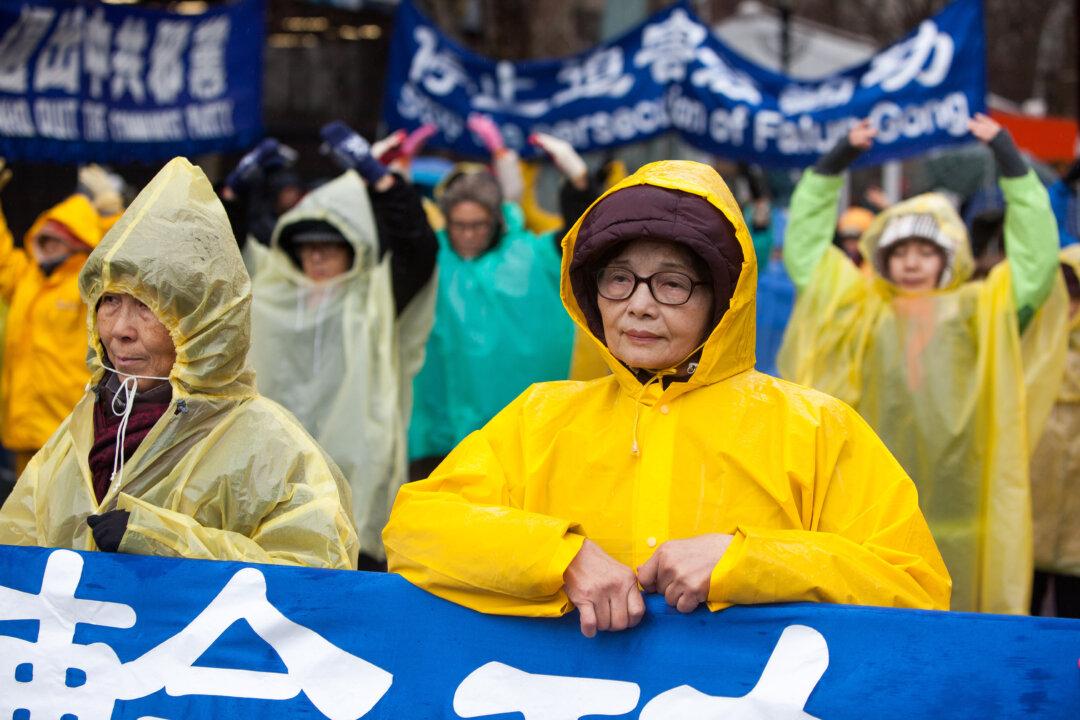NEW YORK—In 1950, the U.N. General Assembly proclaimed Dec. 10 to be Human Rights Day. Wednesday morning, out in in the cold and wet, more than 50 Falun Gong practitioners gathered outside the U.N. in New York City, protesting the brutal persecution of Falun Gong in China.
Almost every one of the 55- to 60-year-old participants were refugees from China, now residing in the United States.
Organizers estimate that about half of those in attendance were survivors of torture meted out by the Chinese Communist Party (CCP). The Chinese regime has attempted to systematically eradicate Falun Gong.
David Tompkins, a spokesman for The Global Service Center for Quitting the Chinese Communist Party, also known as “Tuidang,” stressed that it was an appeal rather than a protest—a heartfelt appeal to the people of the world to speak up.
He’s quite clear that it’s a genocide that is currently taking place in China, and he believes it is incumbent upon the world’s citizens to stand up against it and oppose it.
Tompkins organized the appeal in the hope of drawing the attention of people working in the area, and in the U.N. itself, to the persecution of Falun Gong taking place in China. Attired in yellow and blue, Falun Gong practitioners performed meditative exercises and handed out fliers to passersby detailing the organ harvesting atrocities being committed by the CCP.
Tompkins is dismayed to see that China has been voted in as a member of the Human Rights Council, which he sees as “beyond hypocritical,” since countries on the council are supposed to have good track records regarding human rights.
Chinese media reported that China had agreed to cease organ harvesting as of Jan. 1, 2015, and the general consensus of the media touted this as a resounding success.





